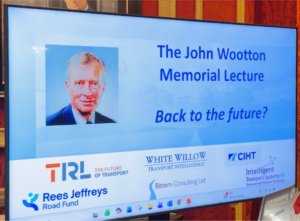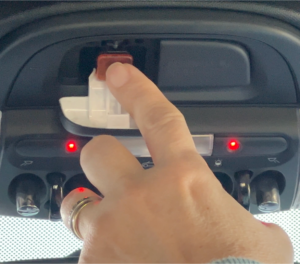Four of the world’s most knowledgeable consultants in connected vehicles and traffic operations have launched a company to improve the use and benefits of the automated eCall safety systems built into almost every new car and van on our roads.
eCall is a built-in safety feature which automatically activates in the event of a collision when the airbags are deployed. It can also be manually activated by the driver or passenger by pressing a button to report something they see, like a stopped vehicle on a live motorway.
Since 2018, all new cars and vans supplied in Europe are fitted with eCall. One in five vehicles on UK roads have it, and there are now more than 10,000 UK alerts every month.
The voice aspect of eCall is widely used by emergency services but the data eCall also provides is not used fully. Every eCall provides the vehicle location, Vehicle Identification Number and fuel type – vital data for both emergency services and highway operators.
There is still a huge opportunity to make the full use of eCall data. Research has already concluded that eCall data alerts can reduce current voice-led response times by a factor of ten. Enhancing existing voice channels with a new data channel, coupled with automatic data filtering, can radically reduce the time taken to know of a collision or other event needing a response.
Therefore, ITS and transport consultants Andy Graham, Andy Rooke, Danny Woolard and Alan Gentle have come together to form VESOS, the first dedicated company for analysing and processing eCall data to create validated incident alerts. The company will also provide consultancy services on implementation and business cases for eCall, as well as strategic advice and data analysis.
The VESOS “TeCall” platform overcomes concerns about the new technology by sitting between the eCall service provider and highways and emergency command and control centre systems. TeCall filters, enhances, prioritises, and forwards eCall incidents that emergency services need, in the form they need, in seconds. It can also be a very valuable historic data source.
“TeCall delivers data about a road incident quicker than an operator can say “what’s your emergency?,” explains Andy Rooke, who has worked on the concept and real world implementation of eCall for 20 years. “TeCall alerts complement the existing voice channels and only report incidents in the geographical areas that emergency services want, filters out alerts from faulty units, provides data for analysis and operations, and ultimately saves lives by reducing response times. In the Connected Vehicle world, eCall is at the forefront. It’s not a question of if but when to start properly using eCall data.”
“That’s just the start of the potential value,” added Andy Graham, who is an expert on business cases and connected vehicles. “We can use the eCall data from the vehicle to estimate the severity of the incident, and help emergency services prepare for what they will find when they get there. When every second counts after a road collision or stopped vehicle, this is a vital piece of technology.”
“Imagine the value of a properly-implemented eCall system on a smart motorway,” added Telematics traffic business development expert Danny Woolard. “Within seconds of an incident being detected, systems can be automatically setting warning signs and closing lanes, keeping those involved far safer in the carriageway. ECall alerts from airbag activations are a highly reliable and rapid indicator of a collision that could become a major event”
Traffic operations design and development expert Alan Gentle added, “eCall data is an obvious and readily available way of saving lives. VESOS is unique in the world of eCall, the only company specialising in the analysis, assessment and implementation of eCall within the world of connected vehicles.”
If you would like to hear more, please email [email protected] or visit www.vesos.co.uk
(Picture – National Highways)
























